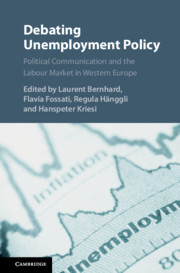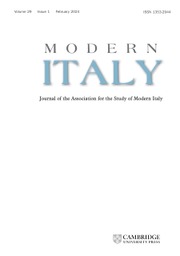Balancing Pressures
Balancing Pressures analyses how the economy, national politics, and supranational politics shape economic policymaking in the European Union. Economic theories alert policymakers of the problems associated with policy initiatives. Economic uncertainties shape political positioning during negotiations, while actual economic conditions affect both negotiations and implementation. National pressures to win office and pursue policies systematically influence negotiating positions, implementation patterns, and outcomes. Supranational pressures are associated with membership in the euro area, the expected and actual patterns of compliance, or the context of negotiations. Spanning the period of 1994 to 2019, this book analyses how these pressures shaped the definition of the policy problems, the controversies surrounding policy reforms, the outcome, timing, and direction of reforms, the negotiations over preventive surveillance, the compliance with recommendations, and the use and effectiveness of the procedure to correct excessive fiscal deficits. It concludes by assessing the effectiveness, fairness, and responsiveness of the policy.
- Presents a theoretical framework for understanding economic policymaking in the European Union, demonstrating how politicians balance pressures arising from the economy, national politics, and supranational politics in the definition of the policy problems, the formulation of policy alternatives, the choice of policy options, and the implementation of executive measures
- Spans the entire policy cycle, from 1994 to 2019, analysing each stage of the cycle including negotiations over policy reforms and compliance with the executive measures
- Employs and combines a variety of theories and methods from international relations, comparative politics, and political economy, showcasing the complementarity and usefulness of the rich tapestry of sophisticated analytical and methodological tools that political scientists and political economists have developed
Reviews & endorsements
'Franchino and Mariotto masterfully combine insights from several different theoretical perspectives to explain the supranational governance of economic policy in the European Union since the Maastricht Treaty. Anyone who wants to understand the policy choices taken in this period, which included the Euro Crisis, and why the EU's economic framework evolved the way it did, should read this book.' Mark Hallerberg, Dean of Research and Faculty and Professor of Public Management and Political Economy, the Hertie School
'A completely new way of thinking about how economic policies work in Europe that will transform research and teaching on this topic for many years to come. Franchino and Mariotto show how the combination of incentives and constraints lead to policy outcomes that, overall, are effective, responsive to the public and balance the interests of smaller and larger countries.' Simon Hix, Stein Rokkan Chair in Comparative Politics, European University Institute
'A landmark contribution to the analysis of economic policymaking in the European Union. This book is not only essential reading for all students of European Union Politics, it is also a model for political scientists and economists alike seeking to contribute to our understanding of policymaking in advanced democracies.' Bjørn Høyland, Professor of Political Science, University of Oslo
'This path-breaking book offers a new theoretical framework to examine European public policymaking. By looking at ideas, cleavages, negotiations, timing, political ideology, public opinion and more, the authors provide a detailed analysis of the policy process that is sophisticated and informative: a must-read for anyone who seeks to understand the intersection of comparative politics and international relations in Europe.' Amy Verdun, Professor of Political Science, University of Victoria
Product details
May 2025Paperback
9781009595865
266 pages
229 × 152 mm
Not yet published - available from May 2025
Table of Contents
- 1. Governing the European economy as balancing pressures
- Part I. Defining the Policy Problem:
- 2. The subtle influence of ideas: austerity needs no rules
- Part II. Negotiating and Designing Economic Governance:
- 3. The battle lines: noncompliance risk, asymmetric power, and enforcement
- 4. Compromises, procedures, and the costs of failure
- 5. Governance design under uncertainty, threats, and politicisation
- Part III. Implementing Economic Governance:
- 6. Supranational bargaining, credibility, and preventive surveillance
- 7. Navigating the pressures of preventive compliance
- 8. Causes and consequences of overseeing fiscal deficits
- 9. Effectiveness, fairness, and responsiveness.










